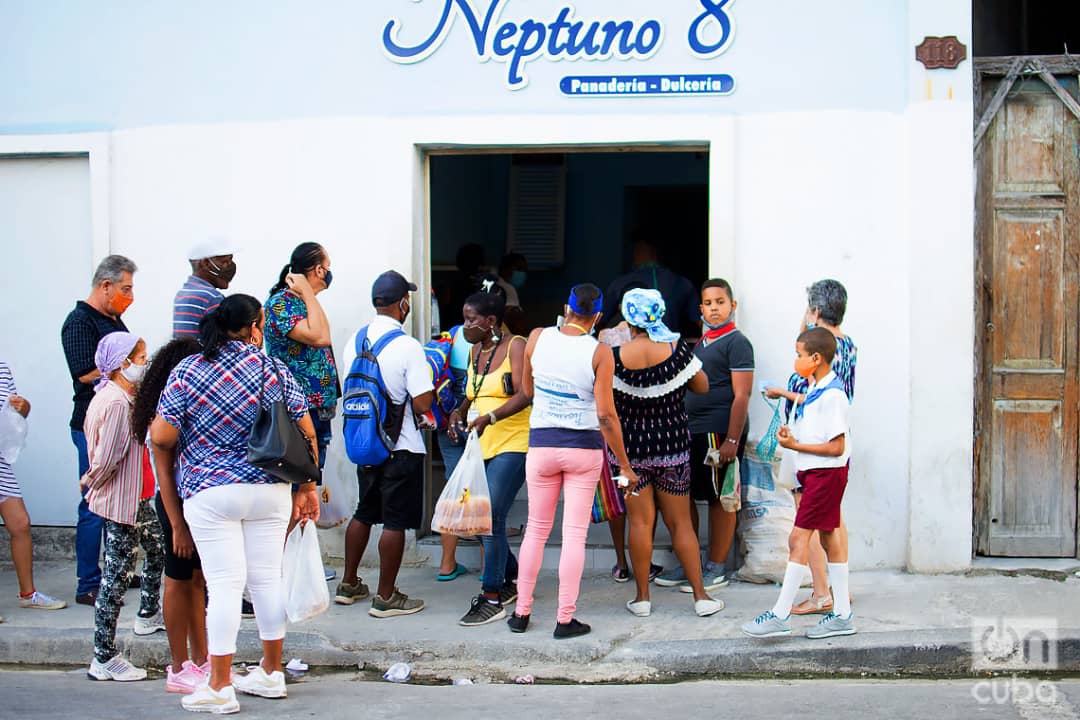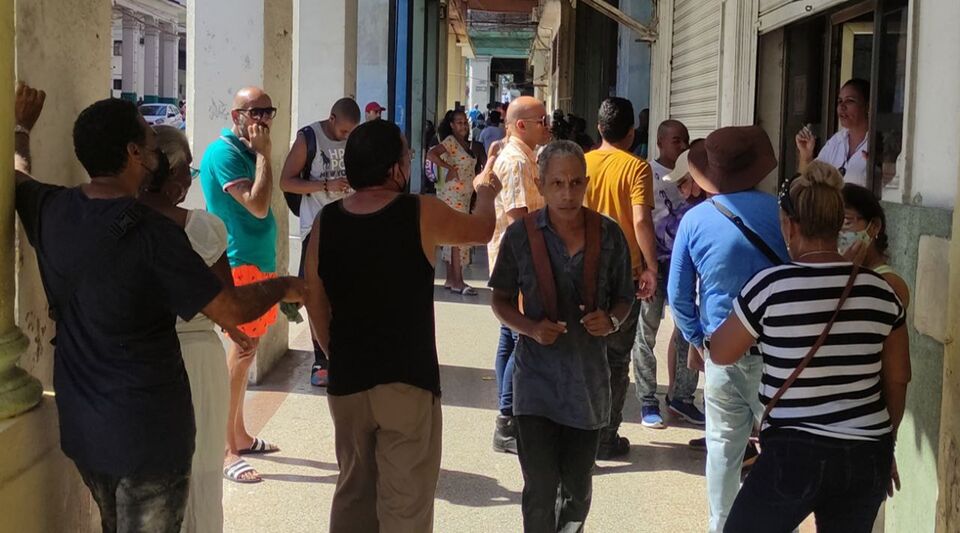The Ministry of Domestic Trade (Mincin) of Cuba assured this Tuesday that “there are no effects on the production and distribution of bread from the Standardized Family Basket”, popularly known as “the bread of the notebook”.
This situation, according to the Mincin, is extensive to the Cuban Bread Chain, which markets this demanded food in a free manner.
In a note posted on your websiteand reproduced by the official media, the entity states that in recent months “the difficulties for importing wheat have worsened”, which “has affected the availability of this product”.
Among the causes of the above, he lists “the intensification of the blockade (by the United States), the current international logistics crisis and the country’s financial limitations.”
Faced with this situation, the Mincin affirms that “the country has sought alternatives to ensure the production of bread from the Standardized Family Basket”, which is delivered in a rationed manner through the so-called supply booklet, and “ratifies” that it will not suffer affectations, at least not for the moment.
It is ratified that there are no effects on the production and distribution of bread from the Standardized Family Basket and the Cuban Bread Chain.@BetsyDazVelzqu2 @GriselAvila13 https://t.co/eaCi5jCKmA
– Trade Cuba (@MincinCuba) August 23, 2022
This information is disclosed days after a government meeting in Havana explained that “due to delays in the arrival of wheat and flour, and the high prices that maritime services have today in the market, it has been decided to reduce flour consumption in the capital”.
Julio Martínez Roque, coordinator of the Havana Government, explained that in this scenario, only the Standardized Family Basket would be guaranteed, the bread destined for the prison population, as well as “a level for Public Health, children without family protection, nursing home, hospitals psychiatric hospitals and that of the Cuban Chain of Bread”, according to a report of Tribune of Havana.
In addition, the official specified that the current situation “means that at this time it is not possible to guarantee the bread for social consumption of a group of organisms, that of Gastronomy, and Education.”
As a result of this information, comments and rumors about more rationing and limitations in bread production began to circulate on social networks, among which the digital site Cubadebate mentions the assumption that the current flour deficit “would lead to rationalizing the sale of bread by age groups and prohibiting the marketing of this product by the non-state sector.”
On this last point, however, the Mincin did not pronounce itself in its note this Tuesday.
Private bakeries cover part of the demand for bread on the Island, but their supply is periodically affected by difficulties in accessing flour —as is the case these days and has been repeated on several occasions in recent years—, which has an impact on the increase in prices.
The current problems with bread production come at a time of scarcity and shortages of other basic products and medicines, in the midst of a complex economic and social situation on the Island.
According to official data, Cuba imports about 70% of the food it consumes at an annual cost of more than 2,000 million dollars.

















